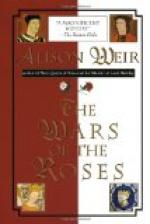“I thank you for your kind thought for me, and I will use all prudence when I stir from the shelter of this hospitable roof. But my next journey will be to London, and there, methinks, shall I find more of law and order. It is a sad state of things when not forty miles from the king’s own city bands of robbers abound and flourish, making honest folks tremble for their lives and liberties.”
“You speak truly; young sir,” answered Mistress Devenish, who had now sat down to her spinning wheel in the inglenook, whilst her daughter still hovered about restlessly, and waited assiduously upon their disabled guest. “And had King Edward but kept his throne, I verily believe he would have put down with a strong hand these same marauders who devastate the country more than war itself. Things were beginning to improve after the long and disastrous civil strife, and we fondly told ourselves that the worst was over, and that the distracted country would taste something of the blessings of peace again. But since that haughty earl men call the King Maker has gone to France to make his peace with the Lancastrian queen, and has returned to place her husband (poor man, it is no fault of his that he cannot sway the sceptre, but can only submit to the dictates of others) on England’s throne, we shall again be plunged, I know it well, in bloody and terrible strife. The lion-hearted Edward will never resign his rights without a struggle. He will return and collect an army, and the cruel bloodshed will recommence. This bloodless victory will not last. God alone knows how the struggle will end. We know but too well that misery and desolation will be the fate of the country until the matter is finally settled one way or the other; and when will that be?”
Paul listened in grave silence to these words, so foreign to his own hopes and the confident expressions he had heard from time to time uttered by hot partisans of the Red Rose. He had hoped to find the whole country rejoicing in the restoration of the gentle monarch, whom he loved with the ardour of a generous and impetuous temperament. But these simple folks, rustic and unlettered though they were, managed somehow to throw a shadow over his spirit by their grave and doubting words.
He realized that King Henry would have a hard struggle ere the whole of England owned his sway. Edward was yet the king in many a part of the realm. He was more respected and beloved than the feeble, monk-ridden monarch he had deposed; and if it came to be a question of abstract right, none could dispute the superiority of the claim of the House of York. Edward was the descendant of the elder branch of the family of Edward the Third. It was only the politic reign of the fourth Henry, and the brilliant reign of the fifth, which had given to the House of Lancaster its kingly title. Men would probably never have thought of disputing the sixth Henry’s sway had he held the sceptre firmly and played the part of king, to any purpose. But his health and temperament were alike feeble: he inherited the fatal malady of his grandsire of France, and was subject to fits of mental illness which made him utterly helpless and supine. His strong-minded queen was detested by the nobles and unpopular with the mass of the people, whilst the ambition of the powerful barons and peers had made civil strife an easy and popular thing.




